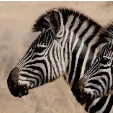One out of every five targeted ads I've seen in the last few days is about the new season of The Bear. I'm not a super fan, but I get the appeal: a smart show with deep characters, funny dialogue, tons of trauma. Critics and audiences seem to eat that up, and that's cool.
The part I don't get is the fetishized view of “the grind," both as work and emotion. For some reason, we’re living in an age where everyone thinks fine dining and the miserable people who exist in that universe make for exciting movies and TV. Cooking shows have been around for decades, and they'll never go away, but we've moved past reality cooking into the realm of fictional kitchens and dictatorial head chefs.
This suffermania has led to a big, terrible injustice: people calling The Bear the best cooking show ever. And that's factually wrong. Because Delicious in Dungeon, or Dungeon Meshi, whatever you want to call it, is a better cooking show by far.
Just in case you haven’t seen either:
The Bear is a show about dudes who scream a lot and sometimes cook.
Delicious in Dungeon is about a group of adventurers exploring a monster-filled dungeon and staying alive by cooking and eating the creatures they kill.
At first glance, the differences are obvious: gritty realism and light fantasy, anxiety and coziness, and a thousand others. But there's a deeper, more essential difference in the way both shows use food as a narrative device.

Anxiety is not an ingredient in any recipe
So tell me: what’s more stressful, exploring a dungeon full of deadly monsters or running a restaurant in Chicago? Roaming the interwebs, you’ll find endless praise for the gritty realism of The Bear: “That’s exactly how chefs speak,” “The way Carmy handles the knife is sublime,” “Everyone at my restaurant is that miserable.” People seem obsessed with the idea of the restaurant industry, not the cooking itself.
Without looking it up, can you even remember a recipe from the show? I know the food looks amazing, and big-time chefs help around the set to keep things accurate. Even the creator's sister, Courtney Storer, is a real fine dining chef who helped keep things real. But I don’t think it’s sacrilege to say the act of cooking often takes a backseat to the character drama. Do you actually watch the show to see how Carmy is going to make a perfect soufflé or some shit?
That’s not a bad thing. But it does mean that when you compare The Bear to a show that uses cooking as a literal narrative engine and worldbuilding tool, it doesn’t hold up as the best cooking show. For all its finesse and stress, it’s not really about food. It’s about the chefs and their passion. Mostly, it's about how much they need professional help.
Delicious in Dungeon, on the other hand, puts food at the very center. And I mean that in the most literal way possible. Food is the emotional, narrative, logical engine of the show. It’s survival, joy, discovery, science, but it's also character development and nourishment.

Eating is the privilege of the living
This line spoken by the dwarf Senshi can be dissected to explain every creative decision behind Delicious in Dungeon. It sounds obvious: the living eat, the dead don’t. But as the story progresses, the show explores every possible meaning behind it.
First of all, it’s how the dungeon works. The dungeon is a living ecosystem, full of monsters, plants, magic, adventurers. And one thing keeps the whole system going: something will eat something else. Take their first shared meal: giant scorpion and walking mushroom hot pot:
Senshi walks everyone through the entire process: how to prepare the scorpion, how much mushroom to use, even which herbs to pick from nearby. It’s cute, but it's also crucial. At one point, Senshi mentions that the tail must be removed, and Laios replies that his monster guidebook didn’t include that. Right there, we learn: cooking is how this party survives and learns. It’s the key to understanding the dungeon. The rules of the dungeon are revealed through recipes.
Food is worldbuilding. Eating, hunting, growing, digesting are integral parts of the show. The dungeon is an organism that feeds on magical energy. That ecosystem affects everything: how monsters evolve, what ingredients are available, how characters strategize. Understanding food is how you understand the world.
It also means you’re either eating or being eaten. That’s the law down there. But what makes Laios’s party different is that they actually eat the monsters while everyone else brings their own supplies and finds the whole idea repulsive. This gives them an advantage over other adventurers who might be better organized or equipped. It's a nice, clever way to give exposition and to advance the plot while keeping in theme.
Community
But eating isn’t just about survival. Every meal is a group effort. The party must gather, prep, cook, wash the dishes. They sit in a circle. They eat together. And those scenes are where the real character development happens: backstories, fears, goals, the way they talk to each other. The food brings it out.
DiD takes food out of the kitchen. It’s not about chefs, or restaurants, or the service industry. It’s about survival. Meals become a ritual: everyone stops what they’re doing and eats together. And it makes you want to be there.
Meanwhile, in The Bear, everyone’s screaming and melting down from stress while a plate of nice looking food waits for them. It's just food porn. And like porn, it looks nice, but you're asking for trouble if you try that in your house.


In The Bear, the kitchen is a military unit. There’s a hierarchy. Respect comes through pain. Most of them are just line cooks, and then this haunted Michelin chef shows up and starts yelling at them. They go to war for him every service. Imagine your boss did that to you. They bond through collective suffering.
In DiD, food is community. The focus is not on the battle, it's the part where they sit, eat, and become more than coworkers. Meals don’t break them down, they hold them together.
There's one key thing about the dungeon that The Bear should steal: if you die, you can be revived with magic. This means that most party members have been killed by a monster before. So, when they find the same monster again, they're terrified. Each party member gets an episode like that, where they finally kill the monster and make a meal out of it.
The right kind of obsession
Take a look at this scene where Marcus stages with a world-renowned pastry chef.
Before that, Marcus had been struggling with the perfect donut. Here, he learns something important: obsession can be inspiring and destructive. The best food the fancy chef ever tasted wasn’t about technique. It was about being moved. This scene is presented as some kind of epiphany. And it is, and it makes sense for the character Marcus. The problem is that the same lesson is learned and reinforced in every single meal in DiD. The same lesson, learned through joy and curiosity instead of through a neurotic boss screaming in your face.
Laios, the leader of the party in DiD, is obsessed with eating monsters. It's a weird thing he has, every time he sees a new monster, his brain immediately thinks of two things: its weakness and the best way to cook it once it's dead. Carmy from The Bear is also obsessed, but in that controlling, brooding way that the show romanticizes. It's not about one being wrong and one being right, it's about managing to tell a story through food.
All of this is to say, there's a clear difference between the two:
The Bear is a great show about people who cook. Delicious in Dungeon is a great show about cooking, about how food shapes the world, builds relationships, reveals mysteries, and keeps you alive.
Also, Carmy and his crew wouldn’t last five minutes in the dungeon. There's literally only one monster in the whole first season that can be defeated via yelling. Other than that, they’d be monster shit by the end of the episode.






























































View replies 0
View replies 0
View replies 0
View replies 0
View replies 0